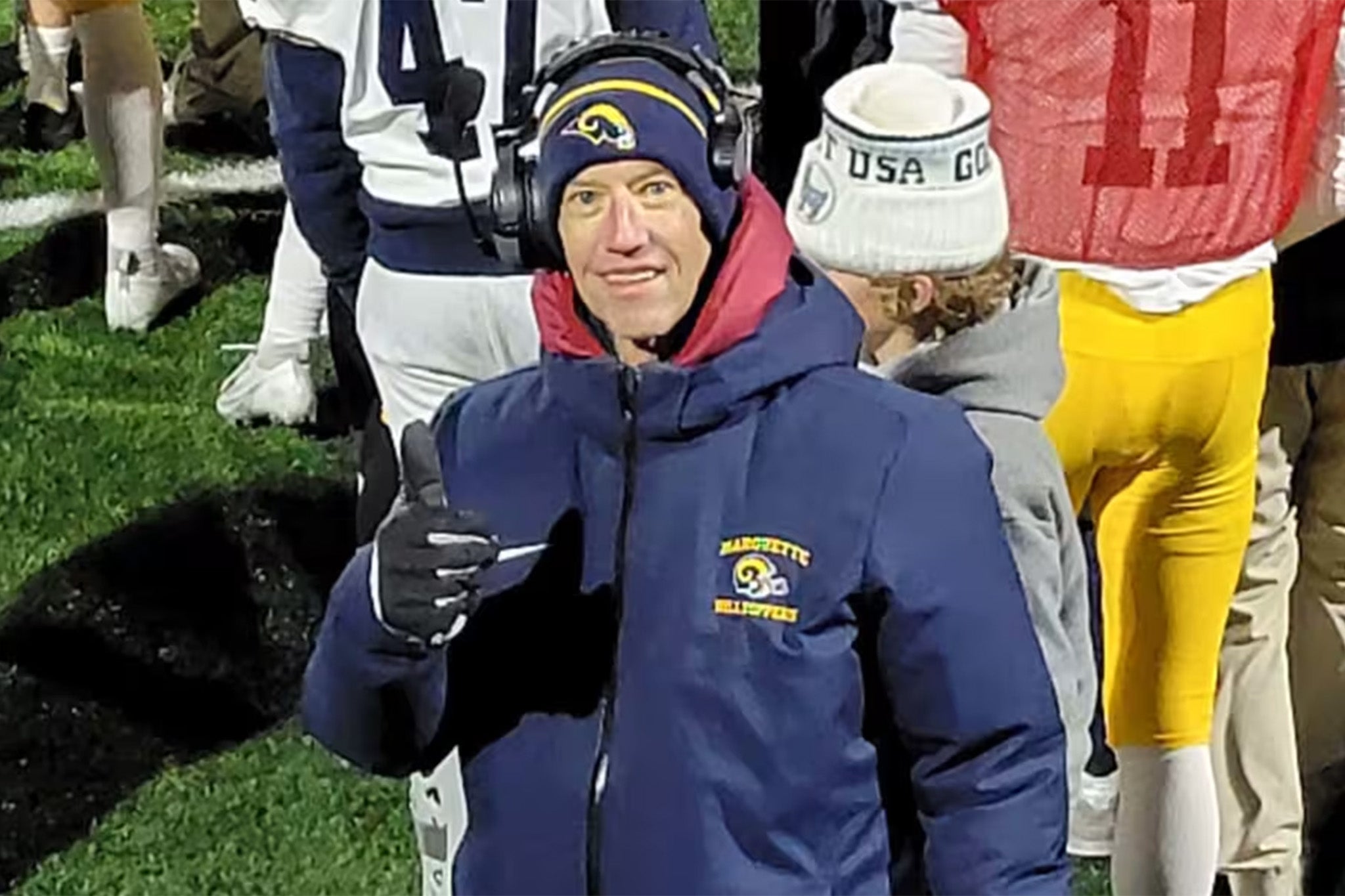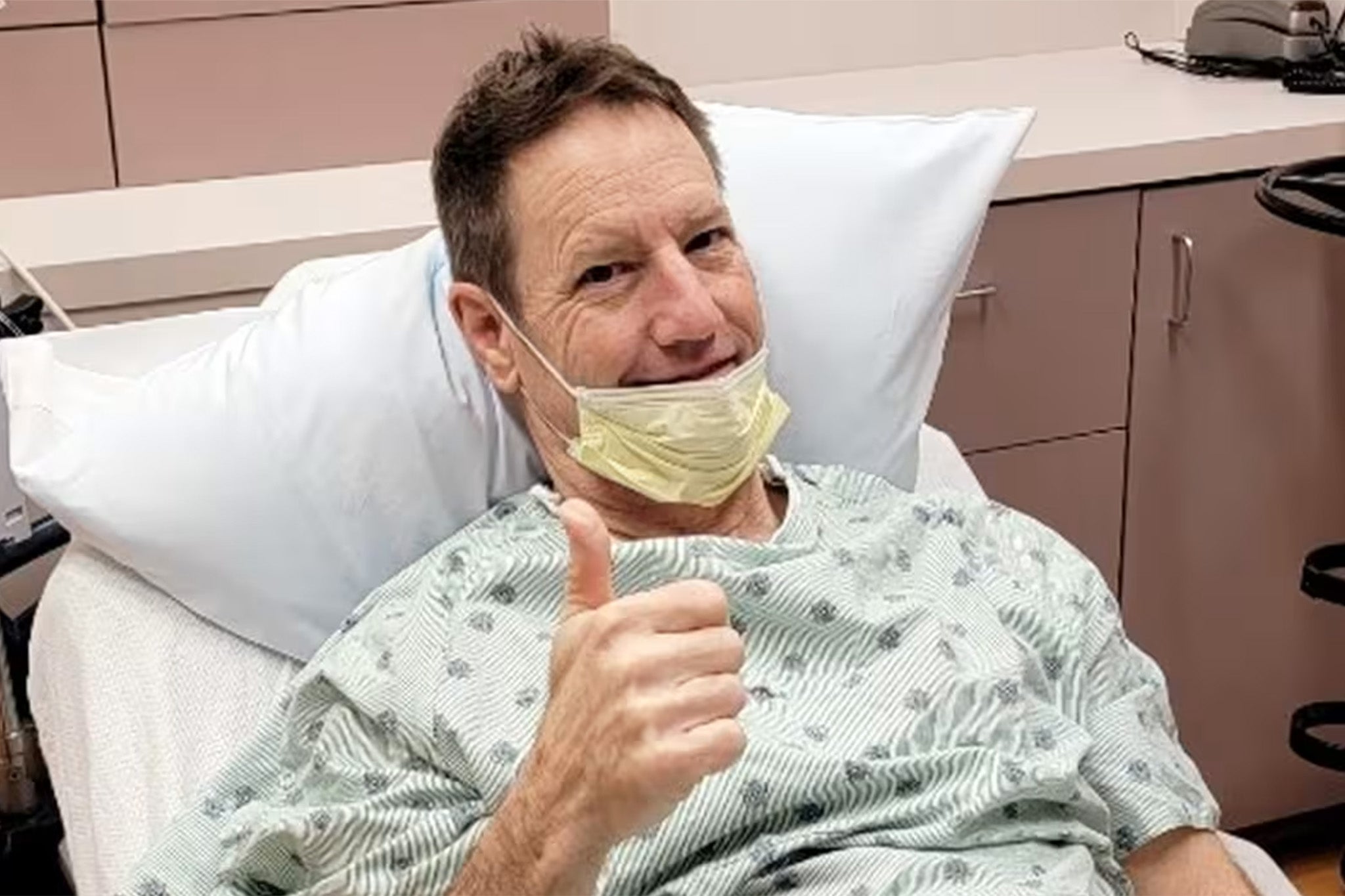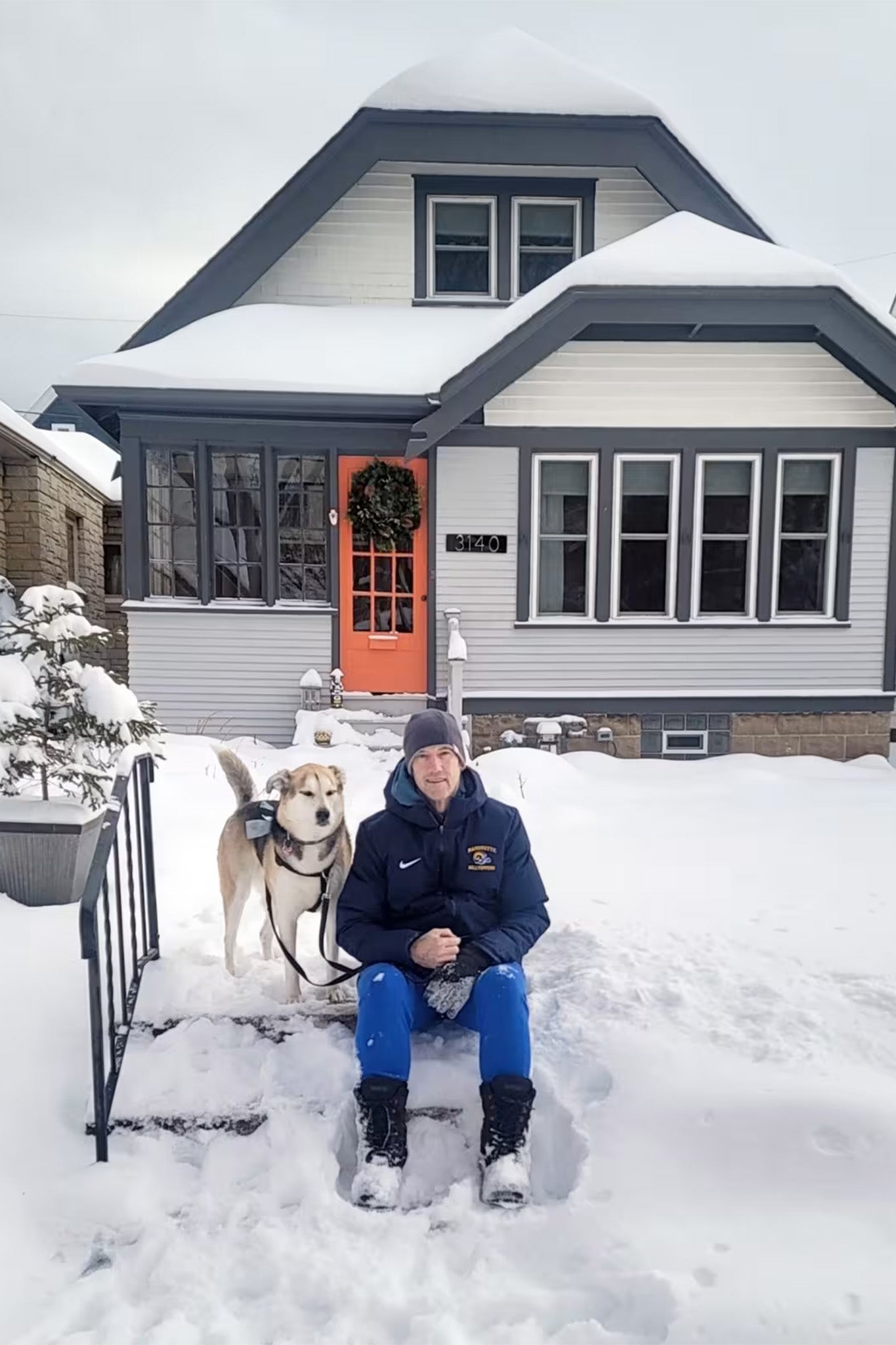Beloved high school football coach, 60, dies due to chemo drug shortage
Jeff Bolle’s death comes amid a devastating shortage of critical chemotherapy drugs, which has left cancer sufferers unable to access much-needed treatment
Your support helps us to tell the story
This election is still a dead heat, according to most polls. In a fight with such wafer-thin margins, we need reporters on the ground talking to the people Trump and Harris are courting. Your support allows us to keep sending journalists to the story.
The Independent is trusted by 27 million Americans from across the entire political spectrum every month. Unlike many other quality news outlets, we choose not to lock you out of our reporting and analysis with paywalls. But quality journalism must still be paid for.
Help us keep bring these critical stories to light. Your support makes all the difference.
A beloved high school football coach died aged 60 due to a widespread shortage of a chemotherapy drug needed for his cancer treatment.
Jeff Bolle was a force on the sports field as a varsity football and baseball coach for students at Marquette University High School in Milwaukee and also worked as a guidance counsellor.
But his life was suddenly turned upside down when he was diagnosed with stage four bile duct cancer in October 2022.
Bolle started chemotherapy in 2023, but his treatments abruptly stopped when he could no longer access the drug cisplatin, amid a widespread, drastic shortage of chemotherapy drugs across the country.
In December, seven months after losing access to the drugs, he died. Bolle was just 60 years old.
His wife Connie Bolle has now spoken out about her belief that her husband may still be alive if it weren’t for the shortages of the critical medication.
“I just keep wondering, ‘What if we had gotten the cisplatin? Could it have slowed his cancer down?" Connie Bolle told TODAY.

“Would he have been able to coach even more? Would he have been stronger? Would he have felt better? ... It’s always a second guess.”
Ms Bolle told TODAY that, when Bolle was first diagnosed with cancer, doctors hoped they could prolong his life through surgery and chemotherapy as he was in good health at the time.
While he knew he would never fully recover, he wanted to undergo chemotherapy to “hold it off” and extend his life as long as possible.
He initially underwent surgery and four rounds of chemotherapy.
Bolle was just two rounds short of his chemotherapy treatment when he was told in May 2023 that the drug he was using was no longer available.

“He was never able to get on cisplatin (again),” Ms Bolle said. “His cancer was just continuing to grow, and his bile ducts were getting compromised because the cancer was pushing on them even more. He was really getting so very sick. It was horrible.”
Ms Bolle said that her husband’s condition quickly deteriorated and doctors told him in September that there was nothing else they could do to save him.
Despite his condition, Bolle continued to coach his teams as long as possible.
He told TODAY last year that he hoped to continue to coach at least one more football season – and he did just that.
His wife said that he continued showing up for his players at least a few times a week and attended games from a wheelchair on the sidelines for as long as he could.
Just before he died, his team won the state championship in November.

“The Marquette University High School ended up winning the division one state championship football title, and they were not predicted to be the one (to win),” Ms Bolle said.
“Jeff made it to every single one of the games.”
Bolle’s death came amid a devastating shortage of critical chemotherapy drugs, which left cancer sufferers unable to access much-needed treatment.
Around the time that he was denied access to cisplatin, more than a dozen cancer drugs, such as carboplatin, were also in short supply across the US. Cisplatin and carboplatin combined are prescribed to around 10 to 20 per cent of all US cancer patients, according to the National Cancer Insitute.
A survey conducted by the American Cancer Society, released a few weeks before Bolle’s death, found that one in 10 cancer patients and survivors had been impacted by the shortages.
While various actions have been taken to try and reduce future shortages, such as a recent White House plan to reduce risks of shortages of drugs in future, many cancer drugs are still in short supply today.
As of April 2024, the FDA indicates that 15 oncology agents are still “currently in shortage” while shemotherapy drugs like methotrexate, carboplatin, and Bolle’s prescribed drug, cisplatin, all remain on the drug shortage list.
Ms Bolle said that, after her husband went to lengths to speak out about his experience of drug shortages, he would be saddened to hear that there are still issues obtaining these essential treatments today.
“He really cared about other people not getting these chemotherapy drugs,” she said. “He would still be sad today that people are still dealing with this.”
Subscribe to Independent Premium to bookmark this article
Want to bookmark your favourite articles and stories to read or reference later? Start your Independent Premium subscription today.

Join our commenting forum
Join thought-provoking conversations, follow other Independent readers and see their replies
Comments